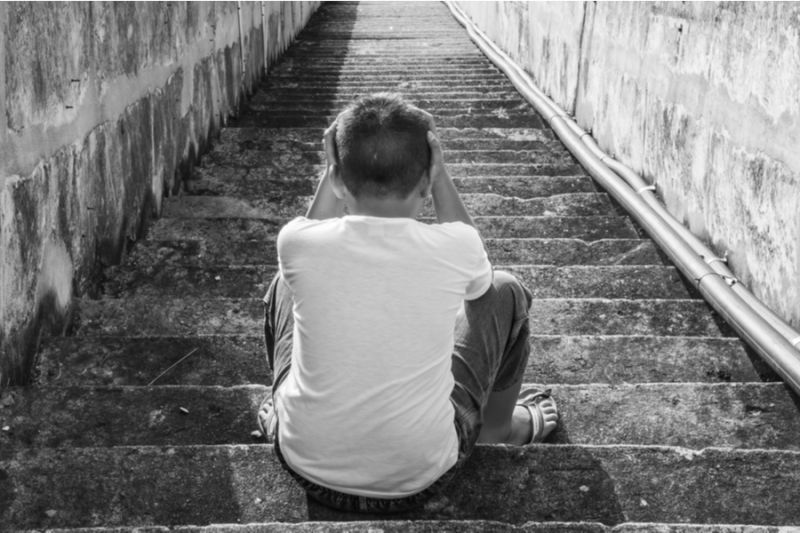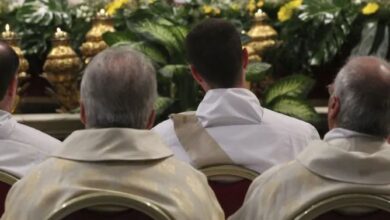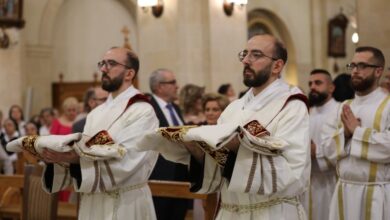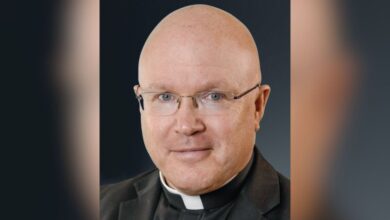Maryland attorney general report on abuse claims to identify more than 600 victims

 Child at high risk of being trafficked and abused. / Eakachai Leesin/Shutterstock
Child at high risk of being trafficked and abused. / Eakachai Leesin/Shutterstock Washington, D.C. Newsroom, Apr 5, 2023 / 15:15 pm (CNA).
Archbishop William Lori of Baltimore apologized to abuse survivors on Wednesday following the release of a Maryland attorney general’s report chronicling hundreds of alleged abuses committed by clergy in the archdiocese, dating back to the 1940s.
“To all survivors, I offer my most earnest apology on behalf of the archdiocese and pledge my continued solidarity and support for your healing. We hear you. We believe you and your courageous voices have made a difference,” Lori said April 5.
“Through difficult, although deeply meaningful, meetings, I have experienced your brave witness, and the power of your words and testimony compel my personal conviction to ensure we do everything possible to prevent future incidents of abuse and promote healing for survivors.”
Maryland Attorney General Anthony G. Brown on Wednesday released the 463-page redacted report detailing alleged sexual abuse committed by 156 people — most of them clergy — with connections to the Archdiocese of Baltimore, including 10 names that are redacted. The report notes the redactions were made in accordance with a court order because the individuals accused “were not known to be deceased at the time of the report and had not previously been listed as credibly accused by the Archdiocese of Baltimore or otherwise publicly identified.”
The report made extensive use of records provided by the archdiocese as well as information gathered from a tipline, interviews with alleged victims, and public records.
Brown said the report includes information about “every current or former Catholic clergy member, seminarian, deacon, member of a Catholic religious order, or other employee of the archdiocese who has been the subject of credible allegations of child sexual abuse in Maryland known to this office,” including “persons never assigned to the Archdiocese of Baltimore.”
“The report documents a long history of widespread abuse and systemic coverup by clergy and others associated with the Church throughout the archdiocese. Young people in some parishes were preyed upon by multiple abusers over decades, and clergy used the power and authority of the ministry to exploit the trust of the children and families in their charge,” Brown wrote in a press release accompanying the report.
“The report also describes the repeated actions of those in positions of leadership to conceal and cover up the abuse, moving priests to other parishes, failing to investigate or report abuse to civilian law enforcement authorities, and providing financial support to priests in retirement.”
The report states that several parishes within the archdiocese had multiple alleged abusers. “St. Mark Parish in Catonsville had 11 child abusers living and working there from 1964 to 2004,” the report states. Four other parishes had six alleged abusers, and three parishes had five accused of abuse, according to the report.
The report, compiled by the office of former Maryland Attorney General Brian Frosh, claims to identify more than 600 victims. It is currently unclear whether the report will lead to any new criminal charges, though it does note that the report is for informational purposes only and does not constitute a criminal indictment. Frosh retired in January.
Lori noted that instances of clerical abuse in the archdiocese peaked in the 1960s and 1970s, and fewer incidents took place “every year and every decade since then,” alongside the development of canon and criminal law and archdiocesan accountability standards and policies designed to protect children.
“Having spent four years investigating the archdiocese, former Attorney General Brian Frosh signaled that the cultural changes, child protection policies, and accountability measures the archdiocese began implementing more than a generation ago have proven successful,” Lori wrote.
“Make no mistake, however: Today’s strong record of protection and transparency does not excuse past failings that have led to the lasting spiritual, psychological, and emotional harm victim-survivors have endured,” Lori emphasized. “Even if law enforcement does not press charges, the archdiocese still takes seriously our own commitment to zero tolerance by permanently removing from ministry anyone credibly accused of child sexual abuse.”
Addressing the apparent discrepancy between the number of priests named in the attorney general’s report and the number of credibly accused priests listed by the archdiocese, Lori has said that the archdiocesan list does not include the names of priests or brothers who died before a single accusation of child abuse was received, unless the allegation could be corroborated by a third party or unless a second allegation was made against the same deceased cleric.
In a legal motion dated Nov. 17, Frosh had asked a judge to release the documents provided by the archdiocese, which were given in response to a January 2019 subpoena from a grand jury.
Then, in December, Judge Anthony Vittoria of the Circuit Court for Baltimore City issued a confidentiality ruling in response to a request from an anonymous group of people named in the report but who were not accused of abuse, the Baltimore Sun reported. The archdiocese paid the group’s legal fees, but for his part, Archbishop Lori said he has not opposed making the report public. Following Vittoria’s action, a group of clerical sexual abuse survivors filed a request with the Baltimore Circuit Court in an attempt to make the recently sealed attorney general’s report public.
By state law, a judge has to approve the documents’ release since they were obtained by subpoena. Circuit Court Judge Robert Taylor ruled March 14 that the attorney general’s office could release the report after making a series of edits concerning 60 people and redacting identifying information about other 37 people, FOX45 news reported. The attorney general’s office was also required to notify the 37 people in question about their inclusion in the report.
Lori apologized to victims of abuse in a November letter and reiterated the archdiocese’s current zero-tolerance policy for sexual abuse.





